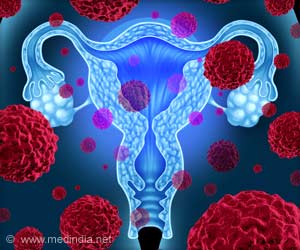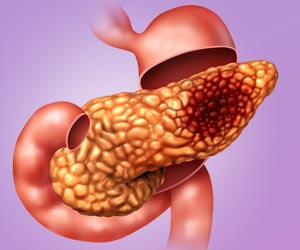- Novel lab-on-a-chip test devices can detect cancer cells by a simple, low cost and non-invasive test performed on a sample of blood plasma to help in early cancer diagnosis
- Despite advances in cancer diagnosis and treatment, early diagnosis remains a challenge in certain cancers such as ovarian cancers where the mortality rates still remain high
- Using the nanopatterning technology other cancers (breast and colorectal) and neurodegenerative diseases can also be detected
The project was led by Yong Zeng, Docking Family Scholar and associate professor of chemistry at Kansas University (KU) in collaboration with tumor-biomarker expert and KU Cancer Center Deputy Director Andrew Godwin at the KU Medical Center's Department of Pathology & Laboratory Medicine, along with graduate student Ashley Tetlow in Godwin's Biomarker Discovery Lab.
The details of the test appear in the journal Nature Biomedical Engineering.
Read More..
How Does the Lab-on-a-chip Blood Test Detect Cancer?
The microfluidic chip device detects the presence of structures called exosomes produced by all cells and in more quantities especially by tumor cells which are actively dividing. These exosomes contain biological molecules that reflect the properties of the parent cells. Thus, an exosome produced and sent out by a tumor cell into the blood plasma will contain tumor antigens which can be detected by this biological test.The new lab-on-a-chip's design is based on 3D nanopatterning technology that effectively mixes and detects biological proteins based on a herringbone pattern commonly occurring nature. By this mechanism, the exosomes present in the sample are pushed and come into contact with the chip's sensor much more efficiently in what is termed ’mass transfer.’
Principle of Mass Transfer Used in The Test
Zeng explains how the mass transfer works by comparing the nanopores in the device to tiny holes of a kitchen sink. If the sink is filled with water (plasma) and has numerous floating balls (i.e. exosomes), the mass transfer or means of getting the floating balls to come in contact with the bottom of the sink (chip sensor) is by draining the water from the sink. This is how the test works."People have developed smart ideas to improve mass transfer in microscale channels, but when particles are moving closer to the sensor surface, they're separated by a small gap of liquid that creates increasing hydrodynamic resistance," Zeng said. "Here, we developed a 3D nanoporous herringbone structure that can drain the liquid in that gap to bring the particles in hard contact with the surface where probes can recognize and capture them."
Key Features & Advantages of the Microfluidic Device Developed
- Test can be used to detect a minute amount of cancer fairly early, especially in those tumors which are often detected late, such as ovarian cancers
- Device is simple and lacks any fancy or complex fabrication
- The test can be easily performed by anyone such as a high school student and does not require any specially trained personnel
- The device is low cost and ideal for application in the clinical setting
Future Plans
Using the nanopatterning technology other cancers (breast and colorectal) and neurodegenerative diseases can also be detected.Summary:
Novel ’lab-on-a-chip’ technology helps to detect cancer present in very small amounts of plasma by a rapid, non-invasive cheap and simple blood test that will aid in early cancer diagnosis.Reference:
- Ultrasensitive detection of circulating exosomes with a 3D-nanopatterned microfluidic chip - (http://dx.doi.org/10.1038/s41551-019-0356-9)
Source-Medindia















